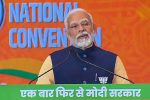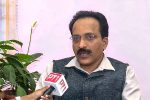
The plastic recycling system is broken – here’s how we can fix it
PTI, Oct 16, 2021, 9:35 AM IST

The investor Warren Buffett once remarked that “only when the tide goes out do you discover who’s been swimming naked”. For the plastics recycling industry, the pandemic was a bit like the tide going out, exposing its deep-rooted structural problems.
Specifically, COVID-19 exposed the plastics recycling sector’s vulnerability to oil-price changes. Economic shutdown driven by the pandemic led to reduced global oil demand, which in turn caused oil prices to plunge. This shifted manufacturers’ preference towards making new plastic, increasing the cost of recycling plastics in the first place.
Changes like this are leading to increasing pollution from new plastic production, with negative consequences for the health of our planet. In the short term, it could also threaten the livelihoods of those working in plastic waste management across the world. And in the long term, it could result in lower investment in the recycling sector, as companies may be wary of risking financial loss.
Since before the pandemic, governments worldwide have shown a tendency to seek quick-fix solutions to plastic pollution to signal a decisive stance on sustainability. For example, a move that commonly receives high levels of political support is a ban on single-use plastic plates and cutlery.
But while this ban has its benefits, it only provides a partial solution to the much larger problem of excessive consumption, influenced by our modern culture of convenience.
Such actions seem to smooth over the problem of generating plastic waste when in reality, the resulting proliferation of other single-use items can lead to even worse environmental consequences. A far better plan would be to first tackle the problems with plastic production at their source.
Improvements, To begin with, it’s time to improve transparency in the plastic production system.
There is not enough data on which types and amounts of plastics are imported and exported between countries, as well as on how those plastics are used, meaning we don’t always know precisely where most waste is generated. A monitoring system that can properly track how plastics flow across different countries will help us to better understand where regulations may be needed.
For example, blind spots in plastic data collection can be illuminated using track-and-trace technology able to follow a piece of plastic from its origin, along many trade routes, to the end of its journey as refuse or recycling.
Analyzing hundreds of thousands of these journeys will help us develop a deeper understanding of the complex political and economic power dynamics that influence plastic supply chains across the planet.
What’s more, we must promote sustainable plastic waste management within countries by making it economically achievable to recycle plastics, even in places with little recycling infrastructure.
To do this, there need to be significant changes in regulations to ensure that companies make the effort to recycle where possible, as well as incentives to achieve recycling targets and establish plants.
In the UK, the plastic packaging tax, due to be introduced in April 2022, aims to increase the demand for recycled plastic. By taxing plastic packaging that contains less than 30% recycled material at £0.20 per kilogram, the government is creating a clear incentive for businesses to take advantage of recycled plastic when planning their products’ packages.
Similarly, in the EU, the plastic packaging levy introduced in January 2021 mandates member states to pay a tax of £0.68 per kilogram on non-recycled plastic packaging.
Although it may be a few years before the effects of these taxes become clear, both are likely to spur improvements in plastic recycling rates while attracting investment into better recycling facilities. But if measures like these are to be successful, monitoring systems need to be put in place to make sure companies aren’t finding ways to dodge the laws.
Finally, the role plastic waste plays in different local cultures shouldn’t be overlooked. Conventions on how plastic waste should be treated, as well as attitudes towards informal waste pickers, ranging from acceptance to stigma, affect the way plastic waste management systems operate. These factors will need to be addressed by those familiar with each community’s customs if these systems are to be improved.
If we want to rid our natural spaces of plastic, we need to promote an inclusive, transparent approach to how plastic waste is treated.
Udayavani is now on Telegram. Click here to join our channel and stay updated with the latest news.
Top News
Related Articles More
MUST WATCH
Latest Additions

FIR against Vijayendra over derogatory post: EC

Congress has transformed Bengaluru into ‘Tanker City’: Modi

Kishan Reddy hits out at Congress for not implementing poll promises in 100 days

Man claims Bishnoi gang member to execute ‘major’ plan in Mumbai; police find call to be hoax

Youth Congress leader trying to protest near PM’s convoy route detained






























